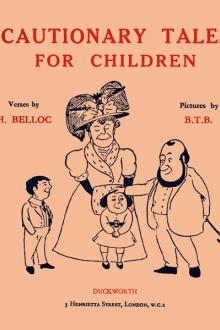Wieland; Or, The Transformation: An American Tale, Charles Brockden Brown [reading diary .txt] 📗

- Author: Charles Brockden Brown
Book online «Wieland; Or, The Transformation: An American Tale, Charles Brockden Brown [reading diary .txt] 📗». Author Charles Brockden Brown
"I hate myself for this folly. I can find no apology for this tale. Yet I am irresistibly impelled to relate it. She that hears me is apprized of every particular. I have only to repeat to her her own words. She will listen with a tranquil air, and the spectacle of her obduracy will drive me to some desperate act. Why then should I persist! yet persist I must."
Again he paused. "No," said he, "it is impossible to repeat your avowals of love, your appeals to former confessions of your tenderness, to former deeds of dishonor, to the circumstances of the first interview that took place between you. It was on that night when I traced you to this recess. Thither had he enticed you, and there had you ratified an unhallowed compact by admitting him—
"Great God! Thou witnessedst the agonies that tore my bosom at that moment! Thou witnessedst my efforts to repel the testimony of my ears! It was in vain that you dwelt upon the confusion which my unlooked-for summons excited in you; the tardiness with which a suitable excuse occurred to you; your resentment that my impertinent intrusion had put an end to that charming interview: A disappointment for which you endeavoured to compensate yourself, by the frequency and duration of subsequent meetings.
"In vain you dwelt upon incidents of which you only could be conscious; incidents that occurred on occasions on which none beside your own family were witnesses. In vain was your discourse characterized by peculiarities inimitable of sentiment and language. My conviction was effected only by an accumulation of the same tokens. I yielded not but to evidence which took away the power to withhold my faith.
"My sight was of no use to me. Beneath so thick an umbrage, the darkness was intense. Hearing was the only avenue to information, which the circumstances allowed to be open. I was couched within three feet of you. Why should I approach nearer? I could not contend with your betrayer. What could be the purpose of a contest? You stood in no need of a protector. What could I do, but retire from the spot overwhelmed with confusion and dismay? I sought my chamber, and endeavoured to regain my composure. The door of the house, which I found open, your subsequent entrance, closing, and fastening it, and going into your chamber, which had been thus long deserted, were only confirmations of the truth.
"Why should I paint the tempestuous fluctuation of my thoughts between grief and revenge, between rage and despair? Why should I repeat my vows of eternal implacability and persecution, and the speedy recantation of these vows?
"I have said enough. You have dismissed me from a place in your esteem. What I think, and what I feel, is of no importance in your eyes. May the duty which I owe myself enable me to forget your existence. In a few minutes I go hence. Be the maker of your fortune, and may adversity instruct you in that wisdom, which education was unable to impart to you."
Those were the last words which Pleyel uttered. He left the room, and my new emotions enabled me to witness his departure without any apparent loss of composure. As I sat alone, I ruminated on these incidents. Nothing was more evident than that I had taken an eternal leave of happiness. Life was a worthless thing, separate from that good which had now been wrested from me; yet the sentiment that now possessed me had no tendency to palsy my exertions, and overbear my strength. I noticed that the light was declining, and perceived the propriety of leaving this house. I placed myself again in the chaise, and returned slowly towards the city.
Chapter XV
Before I reached the city it was dusk. It was my purpose to spend the night at Mettingen. I was not solicitous, as long as I was attended by a faithful servant, to be there at an early hour. My exhausted strength required me to take some refreshment. With this view, and in order to pay respect to one whose affection for me was truly maternal, I stopped at Mrs. Baynton's. She was absent from home; but I had scarcely entered the house when one of her domestics presented me a letter. I opened and read as follows:
"To Clara Wieland,
"What shall I say to extenuate the misconduct of last night? It is my duty to repair it to the utmost of my power, but the only way in which it can be repaired, you will not, I fear, be prevailed on to adopt. It is by granting me an interview, at your own house, at eleven o'clock this night. I have no means of removing any fears that you may entertain of my designs, but my simple and solemn declarations. These, after what has passed between us, you may deem unworthy of confidence. I cannot help it. My folly and rashness has left me no other resource. I will be at your door by that hour. If you chuse to admit me to a conference, provided that conference has no witnesses, I will disclose to you particulars, the knowledge of which is of the utmost importance to your happiness. Farewell.
"CARWIN."
What a letter was this! A man known to be an assassin and robber; one capable of plotting against my life and my fame; detected lurking in my chamber, and avowing designs the most flagitious and dreadful, now solicits me to grant him a midnight interview! To admit him alone into my presence! Could he make this request with the expectation of my compliance? What had he seen in me, that could justify him in admitting so wild a belief? Yet this request is preferred with the utmost gravity. It is not accompanied by an appearance of uncommon earnestness. Had the misconduct to which he alludes been a slight incivility, and the interview requested to take place in the midst of my friends, there would have been no extravagance in the tenor of this letter; but, as it was, the writer had surely been bereft of his reason.
I perused this epistle frequently. The request it contained might be called audacious or stupid, if it had been made by a different person; but from Carwin, who could not be unaware of the effect which it must naturally produce, and of the manner in which it would unavoidably be treated, it was perfectly inexplicable. He must have counted on the success of some plot, in order to extort my assent. None of those motives by which I am usually governed would ever have persuaded me to meet any one of his sex, at the time and place which he had prescribed. Much less would I consent to a meeting with a man, tainted with the most detestable crimes, and by whose arts my own safety had been so imminently endangered, and my happiness irretrievably destroyed. I shuddered at the idea that such a meeting was possible. I felt some reluctance to approach a spot which he still visited and haunted.
Such were the ideas which first suggested themselves on the perusal of the letter. Meanwhile, I resumed my journey. My thoughts still dwelt upon the same topic. Gradually from ruminating on





Comments (0)